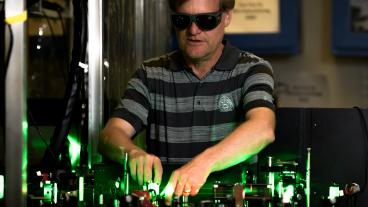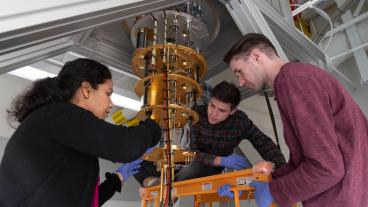Lessons from social sciences could move community engagement on industrial decarbonization projects from “public relations” to meaningful impact

Nebulous calls for “community engagement” on proposed industrial decarbonization projects can move from lip service to real impact by taking into account the decades of social science research on how to meaningfully engage the public in decision-making.
That’s according to a new paper, published today in the journal Nature Communications, by researchers from Colorado School of Mines, Georgia Institute of Technology, University at Buffalo, Arizona State University, Boston University and Visage Energy who have participated in developer-led decarbonization projects across the United States.

"The social sciences have a crucial role to play in the energy transition," said Jessica Smith, lead author on the paper and Dean’s Fellow of Earth and Society at Colorado School of Mines. “Community engagement is much more effective and meaningful when it’s actually based in community-based research – it's the difference between business-as-usual public relations, which hasn’t moved the needle on public opinion, and grounding our relationships in state-of-the-art knowledge about listening and adapting to local priorities.”
Industrial decarbonization is a blanket term for a variety of technologies and approaches that aim to remove or reduce greenhouse gas emissions from industrial sources – energy efficiency, electrification, lower carbon fuels, material demand reduction, circular material flows and carbon capture and storage, among others. Industrial processes currently contribute a third of all greenhouse gas emissions in the United States and 20 percent in the European Union.
“Choosing to host a decarbonization project is not a simple black-and-white issue for communities,” Smith said. “Our review shows that there are good reasons to hope that industrial decarbonization could also create economic benefits and reduce air pollution, but each project brings its own risks that need to be studied, deliberated and managed in partnership with the people who would be most affected.”
Community-based research encapsulates multiple social science and humanities disciplines and encourages the co-definition of problems, deep listening and more equitable collaboration. The current framing for most community engagement, in contrast, often involves a developer presenting information to stakeholders about a pre-designed project when it’s too late to make meaningful changes and then defending their project against community opposition. Integrating feedback earlier into the process could help developers design projects that are socially acceptable from the start.
“Community involvement in industrial decarbonization projects needs to champion equity and energy justice,” said Benjamin Sovacool, co-author and director of the Boston University Institute for Global Sustainability. “This collaborative effort grew out of a National Academies workshop, bringing together some of the country’s top experts to channel their insights into new ways for involving the public in energy decisions.”
The Nature Communications paper brings together two papers from that 2024 National Academies workshop, “Developing and Assessing Ideas for Social and Behavioral Research to Speed Efficient and Equitable Industrial Decarbonization.” Smith recently shared their research in a National Academies online panel, "Guardrails and Governance for the Demonstration and Deployment of Emerging GHG Removal Approaches,” focusing on carbon storage.
“The article is special in that it is co-authored by social scientists from multiple institutions who care deeply about operationalizing research for decarbonization and community benefit,” said Jennifer Hirsch, co-author and senior director of Georgia Tech’s Center for Sustainable Communities Research and Education. “I hope it sets the stage for increased collaboration in this space, since the only way we’ll achieve an equitable energy transition is by working together as a community of practice.”
In addition to Smith, Sovacool and Hirsch, fellow co-authors are Kirk Jalbert, University at Buffalo; Lauren Keeler, Arizona State University; Katie OConnell, Georgia Institute of Technology; and Daryl-Lynn Roberts, Visage Energy.
Read the full paper, “Community-based research supports more just and equitable industrial decarbonization,” on the Nature website.




